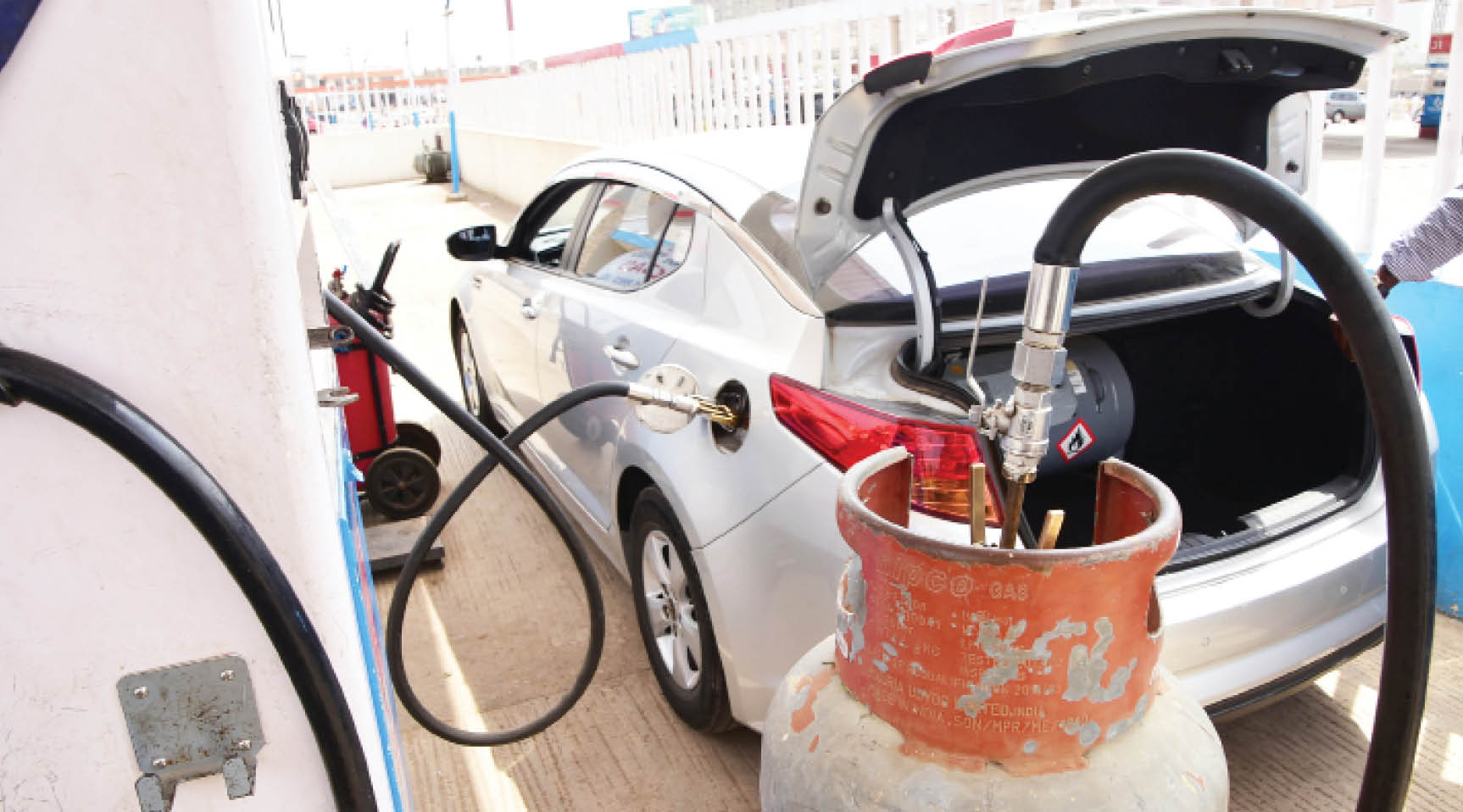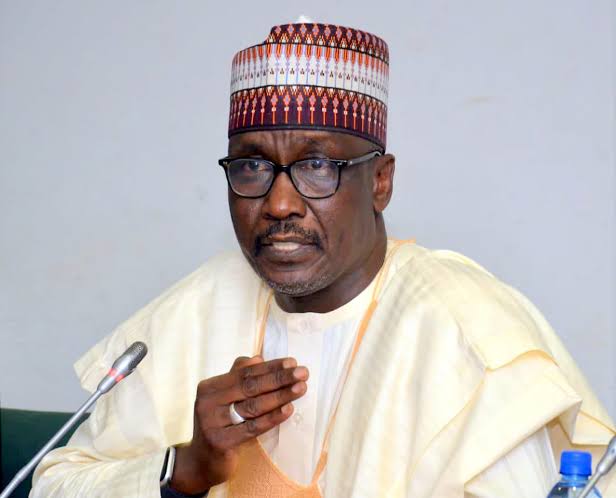News
CNG: No conversion centres in 27 states

-
High cost, fx crisis slow adoption
-
Owners of 15.5m vehicles in dilemma
-
FG partners ALGON to reach 774 LGAs
Twenty seven states are yet to have vehicle conversion centres as the federal government moves to actualise the use of Compressed Natural Gas (CNG) to mitigate the effects of fuel subsidy removal.
Our correspondents across the states report that it is still a long way to go for the Presidential Compressed Natural Gas Initiative (PCNGI), considering that only a fraction of the 15.5 million potential vehicles for conversion have been converted so far.
Even though seen as a game-changer when handled with a sense of responsibility, stakeholders in the oil and gas sector, as well as public and private vehicle owners, believe there are many impediments to the actualisation of the CNG initiative.
These include complete or near absence of the conversion centres in many states, and non-availability of refuelling stations in the event one converts his vehicle.
At present, a litre of petrol has crossed over N700 in many parts of the country, a development that affects prices of goods and services occasioned by hike in cost of transportation.
In contrast, the CNG equivalent of litre is N230.
Experts believe that once the CNG is made available, and cost of conversation, which is over N1, 000, 000 reduced, many Nigerians would seamlessly embrace the initiative.
CNG is seen as a suitable and cheaper alternative fuel for motorists with lower emission impact and a more environmentally friendly fuel.
Daily Trust investigation revealed that it now costs nearly N1.5 million to convert a single sedan vehicle from petrol to CNG, both in Lagos and Abuja.
The conversion cost has skyrocketed from about N400, 000 over a year ago to the current prices, as a result of the devaluation of the exchange rate as the entire component is imported.
Motorists currently running on petrol have complained about cost of conversion kits as a hindrance considering the current cost of living crisis.

How to get it right
Analysts have identified three critical infrastructure that will unlock the transition from petrol to CNG, without which the conversation around the benefit to the nation will remain elusive.
The infrastructure included gas pipelines across the country, CNG conversion centres and dispensing points in retail filling stations.
Officials of one of the companies championing the transition, NIPCO said they are leveraging their extensive and robust natural gas infrastructure to make a difference.
The officials said that they had successfully converted about 10, 000 cars so far.
One of them said they currently have 10 ongoing conversion infrastructures in Lagos with four already completed and awaiting formal inauguration.
“We also have conversion centres in Kogi, FCT, Edo, Uyo, Ogun and Lagos,” he said.
Daily Trust investigation revealed that there are Less than 25 conversion centres nationwide in nine states, to cater for over 15.5m vehicles in the country.
The data collected by our reporters across the 36 states and Abuja also indicates that 27 states have no single CNG conversion centres.
Lagos has the highest number at the moment, with conversion centres in Marina, Fadeyi, Itire-Ishaga, Badore, LASU, Lekki Phase 1, Ketu and Ajah.
There are other independent conversion centres in Abuja in addition to the two provided by NIPCO.
But checks in the far North showed that the project portrays a gloomy picture.
Situation in states
Daily Trust findings showed that there is only one conversion centre in Kwara State located beside the Soludero Park, Post Office, Ilọrin.
The plant is still under construction when our reporter visited the facility.
The state’s Supervising Commissioner for Works and Transport, Abdulquawiy Olododo, said the construction is in line with the objective of the Presidential Initiative on CNG.
The Nasarawa State government said it has taken steps to establish CNG vehicle conversion workshops in the state.
The Niger State Commissioner for Land and Survey, Maurice Magaji, said land had been allocated for the establishment of CNG and LPG centres in the state in Minna, Bida, Tafa, Suleja and Mokwa towns and the Certificates of Occupancy have already been prepared and signed by the governor.
In Ondo State, Gbenga Omole, the Special Adviser to Governor Lucky Aiyedatiwa on Transportation, said the state was still awaiting a directive from the federal government on the CNG-powered vehicles centre.
How Tinubu bought into the CNG initiative
President Bola Tinubu had, in August 2023, approved the establishment of the Presidential Compressed Natural Gas Initiative (PCNGI).
His spokesman, Ajuri Ngelale, said the initiative was to revolutionise the transportation landscape in the country, targeting over 11,500 new CNG-enabled vehicles and 55,000 CNG conversion kits for existing PMS-dependent vehicles.
The Federal Executive Council last week mandated all government Ministries, Departments and Agencies (MDAs) to procure only vehicles and generators powered by CNG and begin converting all petrol or diesel-powered vehicles or generators to CNG.
The Nigerian National Petroleum Company Limited (NNPL) and NIPCO Gas Limited had disclosed a plan to ramp up the first phase of the CNG penetration plan in Q1, 2024.
The Group Chief Executive Officer of the NNPCL, Mele Kyari, said the partnership would see the rollout of 35 CNG stations nationwide to cater for refuelling of about 200,000 vehicles in the first instance.
Under the NNPC-NIPCO strategic partnership, he noted that 35 state-of-the-art CNG stations would be constructed nationwide, including three mother stations.
FG partners ALGON conversion centres’ establishment in 774 LGAs
The federal government and the Association of Local Government of Nigeria (ALGON), at a stakeholders’ meeting in Abuja yesterday, expressed readiness to partner to establish CNG service centres in all the 774 local governments areas.
Director, Road Transportation and Mass Transit, Federal Ministry of Transportation, Musa Ibrahim, who represented the Minister of Transportation, Ahmed Alkali, said: “There are millions of vehicles on our roads today that are running on petrol and we have been approached by investors who want to partner with us to see that we have as many cars being converted to CNG.”
He said the federal government believed that service centres for CNG conversion should not be located only in urban centres. “That is why we’re partnering with the Association of Local Governments of Nigeria to ensure that we also have the service centres closer to the people at the grassroots.”
The Director-General of the Nigerian Institute of Transport Technology (NITT), Zaria, Kaduna State, Bayero Salih Farah, said the collaboration with ALGON was important as the majority of Nigeria’s population live in the local areas.
Dr. Farah said: “The NITT has already sent its engineers for training, both locally and internationally, to equip themselves with the requisite skills they need to provide services in all the 774 LGAs in order to develop a roadmap for the actualisation of the project.”
Chinese firm seeks partnership with FG
The Permanent Secretary of the Ministry of Petroleum, Nicholas Ella, on Tuesday in Abuja, met with officials of a Chinese company, Wen Advisor, in Abuja who are seeking partnership with Nigerian government on CNG-powered vehicles.
The Managing Director of Wen Advisor, Haikuo Weng, said his team was in Nigeria to explore possible areas of investment in the CNG-powered vehicles project.
Weng said to develop a CNG gap pump station, it was necessary to ascertain whether local buses in Nigeria currently use liquefied natural gas or the CNG.
Experts want adoption private sector-driven
An auto industry stakeholder, Dr Oscar Odiboh, in a chat with Daily Trust, said the federal government must fully involve private businesses, especially owners of filing stations, to key into the initiative.
“This kind of CNG thing, the government’s hand should be removed. Leave it for the private people, let them handle the business and ensure they don’t over-profiteer while the government should play a regulatory role,” he said.
The Chief Executive Officer of the Presidential Compressed Natural Gas Initiative Steering Committee, Engr. Michael Oluwagbemi, could not be reached for comments as our reporter was told he was out of the country.
Contributions from Sunday Michael Ogwu, Yusha’u A. Ibrahim, Abubakar Auwal (Sokoto), Ismail Adebayo (Birnin Kebbi), Ahmad Datti (Kano), Habibu Idris Gimba (Damaturu), Abdullateef Aliyu, Peter Moses (Lagos), Ado Abubakar Musa (Jos), Ali Rabiu Ali (Dutse), Amina Abdullahi (Yola), Mumini Abdulkareem (Ilorin), Umar Muhammed (Lafia), Abubakar Akote (Minna), Tijjani Ibrahim (Katsina), Haruna Gimba Yaya (Gombe), Maryam Ahmadu-Suka (Kaduna), Hope Abah (Makurdi), Victor Edozie (Port Harcourt), Eyo Charles (Calabar), Raphael Ogbonnaiye (Ado-Ekiti), Titus Eleweke (Awka), Hassan Ibrahim (Bauchi), Tosin Tope (Akure), Samuel Amah-Ugbor (Enugu) & Nabob Ogbonna (Abakiliki)

